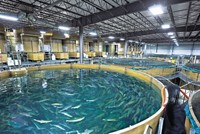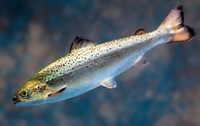Advertisement
Grab your lab coat. Let's get started
Welcome!
Welcome!
Create an account below to get 6 C&EN articles per month, receive newsletters and more - all free.
It seems this is your first time logging in online. Please enter the following information to continue.
As an ACS member you automatically get access to this site. All we need is few more details to create your reading experience.
Not you? Sign in with a different account.
Not you? Sign in with a different account.
ERROR 1
ERROR 1
ERROR 2
ERROR 2
ERROR 2
ERROR 2
ERROR 2
Password and Confirm password must match.
If you have an ACS member number, please enter it here so we can link this account to your membership. (optional)
ERROR 2
ACS values your privacy. By submitting your information, you are gaining access to C&EN and subscribing to our weekly newsletter. We use the information you provide to make your reading experience better, and we will never sell your data to third party members.
Analytical Chemistry
U.S. Approves Gene-Altered Salmon
After lengthy approval process, FDA gives green light to engineered fish
by Britt E. Erickson
November 19, 2015

FDA has approved the first genetically engineered animal intended for food in the U.S.—an Atlantic salmon that is engineered to grow faster than nonmodified salmon. Produced by Massachusetts-based AquaBounty Technologies under the name AquAdvantage Salmon, the modified fish have been awaiting approval in the U.S. for more than a decade.
“FDA has thoroughly analyzed and evaluated the data and information submitted by AquaBounty Technologies regarding AquAdvantage Salmon and determined that they have met the regulatory requirements for approval, including that food from the fish is safe to eat,” says Bernadette Dunham, director of FDA’s Center for Veterinary Medicine.
Environmental groups and some members of Congress are questioning FDA’s decision, saying the agency neglected to address concerns that the engineered salmon could escape and outcompete wild salmon. “The fallout from this decision will have enormous impact on the environment,” says Andrew Kimbrell, executive director of the Center for Food Safety. The advocacy group plans to sue FDA to block the agency’s approval.
Approval of AquAdvantage Salmon “would not have a significant environmental impact because of the multiple and redundant measures being taken to contain the fish and prevent their escape and establishment in the environment,” FDA counters. “AquAdvantage Salmon may be raised only in land-based, contained hatchery tanks in two specific facilities in Canada and Panama,” FDA says. The agency’s approval does not allow AquAdvantage Salmon to be bred or raised in the United States.
Dozens of U.S. grocery store chains, including Safeway, Kroger, Target, Trader Joe’s, Whole Foods Market, and Aldi, have already said they will not sell the modified salmon. “It’s clear that there is no place in the U.S. market for genetically engineered salmon,” says Lisa Archer, food and technology program director at the environmental group, Friends of Earth. “People don’t want to eat it, and grocery stores are refusing to sell it.”
FDA is not requiring companies to label fish that has been genetically modified, so consumers have no way of knowing whether the salmon they buy has been engineered. The only way to ensure that salmon is not engineered is to buy wild-caught salmon, FDA says. However, food companies can voluntarily label their product to indicate whether it has come from genetically engineered Atlantic salmon.
“We recognize that some consumers are interested in knowing whether food ingredients are derived from genetically engineered sources,” says Susan Mayne, director of the FDA’s Center for Food Safety & Applied Nutrition. To that end, the FDA also issued two documents that “explain how food companies that want to voluntarily label their products can provide this information to consumers.”





Join the conversation
Contact the reporter
Submit a Letter to the Editor for publication
Engage with us on Twitter